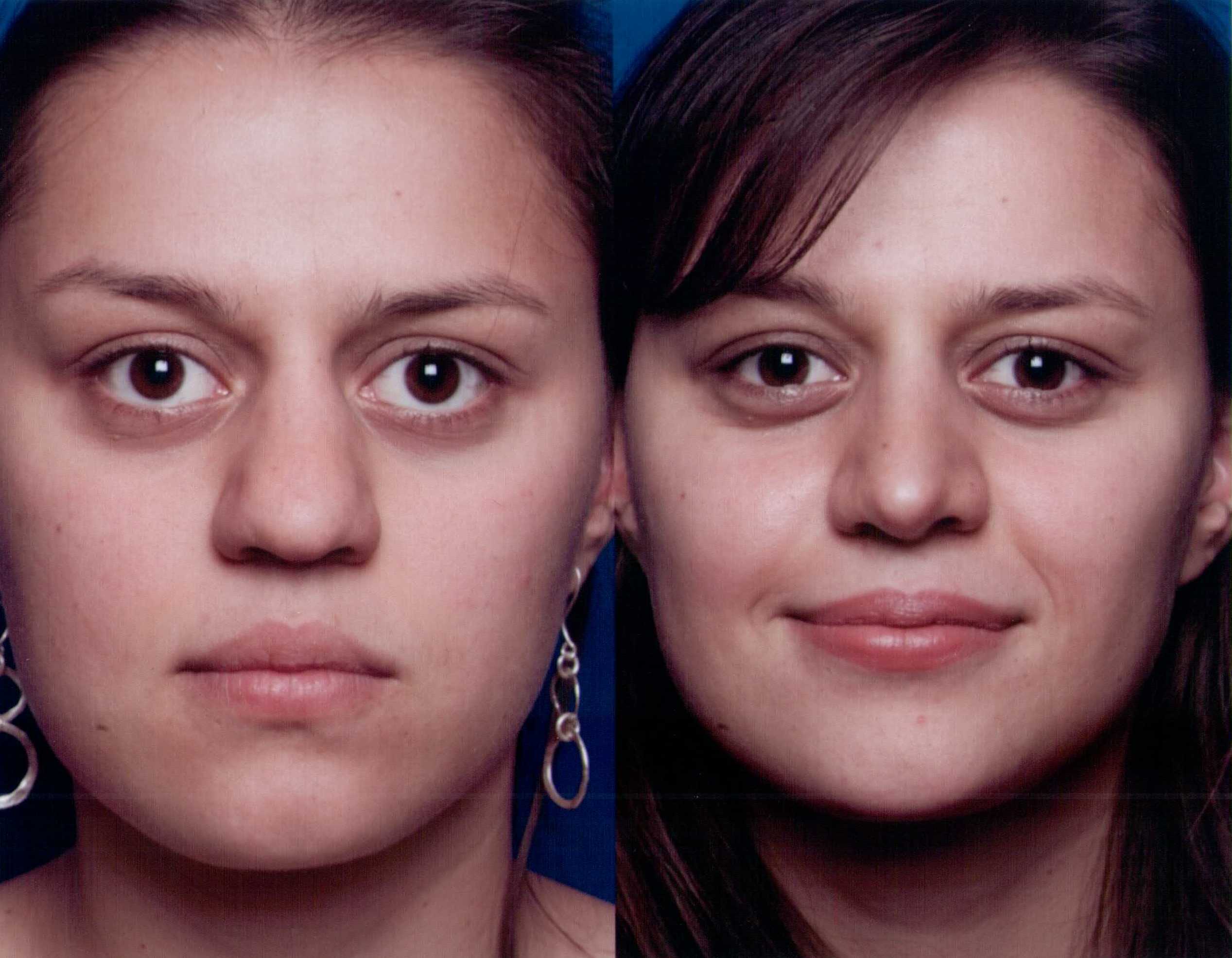More than a nose job
Article by Liza Hattingh
 EVER SINCE SHE CAN REMEMBER, SANET WAS THE OBJECT OF RIDICULE BECAUSE OF HER NOSE. EARLIER THIS YEAR SHE UNDERWENT FACIAL SURGERY. SANET SAYS THE CHANGE IN PEOPLE’S ATTITUDE TOWARDS HER – AND HER ATTITUDE TOWARDS THEM – HAS BEEN REMARKABLE
EVER SINCE SHE CAN REMEMBER, SANET WAS THE OBJECT OF RIDICULE BECAUSE OF HER NOSE. EARLIER THIS YEAR SHE UNDERWENT FACIAL SURGERY. SANET SAYS THE CHANGE IN PEOPLE’S ATTITUDE TOWARDS HER – AND HER ATTITUDE TOWARDS THEM – HAS BEEN REMARKABLE
I still can’t believe the change in myself. It’s been only a few weeks, yet my attitude towards people has changed completely. I’m feeling strong, positive, radiant and confident. The negative feelings and emotions are gone. And I never want to hide away anymore.’
Until recently, Sanet did a lot of hiding away. But in August this year, she had plastic surgery to straighten her crooked nose (rhinoplasty) and balance her profile with chin augmentation (mentoplasty). The changes have gone far beyond the physical. ‘I can sense a difference in the reactions of people I meet who didn’t know me before the operation‘, she says. `There is more respect and more acknowledgement for me as a person than in the past.’
Sanet’s perception that people judged her purely on her looks is confirmed by studies: humans share a common perception of what is attractive, regardless of race, nationality and age. One universal criteria is bilateral symmetry. In an experiment in which babies were given pairs of pictures of people considered attractive and less attractive by adults, psychologist Judith Langlois found that even they looked at the more attractive face for longer.
Studies undertaken since the ‘60s and ‘70s show that our concept of attractiveness never remains theoretical, but influences our behaviour. According to Professor Charles Morris, former professor of psychology at the University of Michigan in the US, physical attractiveness can powerfully influence the conclusions that other people reach about our character: “Attractive people are given credit for more than their beauty. They are presumed to be more intelligent, interesting, happy, kind sensitive and successful.’
This almost universally favorable attitude toward physical attractiveness can become a self-fulfilling prophecy. Physically attractive people may come to think of themselves as good or lovable because they are continually being treated that way. Conversely, unattractive people may begin to see themselves as bad or unlovable because they have always been regarded that way – even as children.‘
Sanet has experienced this prejudging mentality from an early age. Other children would call her names, while adults would sometimes be harsh. ‘It was as if people expected me to be disobedient and unintelligent. Visitors to our family home would make remarks about my appearance in my presence, comparing me to the other ‘‘normal’’ members of the family,’ remembers Sanet.
So it’s not surprising when a colleague at a large mining company where Sanet works confirms that `the change in Sanet is remarkable. She is glowing and far more confident. You can see it just in the way that she now talks to people.‘ Sanet says friends and acquaintances had been supportive and complimentary: remarks varied from ‘I’m flabbergasted‘, to `your mouth looks beautiful,’ to ‘I like your new hairstyle.’
Surgery was the final step in a long and difficult path. Four years ago, Sanet had reached a nadir: she was depressed, emotionally traumatised and had no will to live. She was self-destructive, and dependent on antidepressants and painkillers. Therapy hadn’t helped, until a social worker her mother had contacted in desperation helped Sanet realise how her bitterly negative self-image lay at the root of her depression. She then found new motivation – but she also knew that the face that had drawn so many unkind remarks throughout her life had to be changed.









